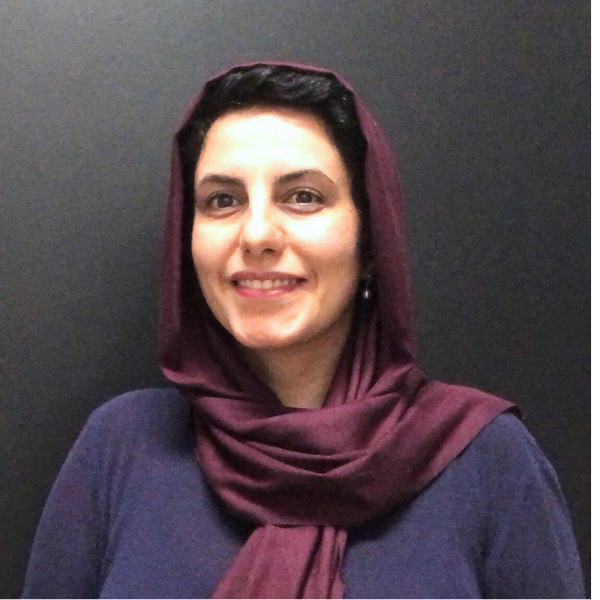When it comes to brain health, timely imaging can be a matter of life or death. Hospitals currently rely on MRI and CT scans to perform these critical tests, but access can be limited by the size and complexity of the machines.
“There’s a critical gap in the neuroimaging space,” said Atefeh (Ati) Zarabadi, CEO of AiimSense. She co-founded the Waterloo startup in 2019 to develop a portable imaging device that uses safe electromagnetic technology and eliminates the need for bulky machinery typically found in medical facilities. This innovative approach allows for often complex and costly brain scans to be conducted right at the patient’s bedside, significantly improving access to real-time monitoring and preventative care.
“It’s very exciting to work on something that is giving birth to a new imaging modality,” said Zarabadi. “This technology can open up a promising future for brain health care by democratizing brain imaging.”
Zarabadi wants to see a future where diagnosing a stroke or assessing Alzheimer’s disease is as straightforward as getting an X-ray or ultrasound.
“This could revolutionize how we manage brain health,” Zarabadi said. “It could be used on-site in ambulances, making early diagnosis possible.”

Zarabadi said when it comes to stroke treatment, “time is brain.” Each moment a stroke remains untreated can lead to irreversible brain tissue loss. Current imaging technologies, like MRI or CT scans, often require patients to travel to specialized facilities, which can be especially difficult for the elderly or those in critical conditions. Zarabadi said that in remote areas, patients may need to drive for hours to reach the nearest MRI machine, and by the time they arrive, they could have already missed the window for effective treatment.
A portable imaging device could provide timely scans on-site, significantly reducing the risk of permanent brain damage, disability, or even death. Zarabadi also said this portable solution would be much more affordable—around one-twentieth the cost of a traditional MRI machine—making it accessible to a far greater number of hospitals.
The team at AiimSense is preparing for its next big milestone - testing its minimum viable product (MVP) on humans and collecting human data, which could bring us closer to a future where quick and accurate brain health assessments are more accessible.
“Taking this device from the lab to hospital and putting it in the hands of physicians and specialists, that is the driving force behind all the activities we are doing,” said Zarabadi. “It is very strong motivation.”
Before launching AiimSense, Zarabadi dedicated considerable time to research during her PhD at the University of Waterloo, focusing on advanced instrumentation. She acknowledges that transitioning from academia to entrepreneurship has been a learning curve.
“I come from a research background, so this journey has challenged me to wear many hats,” she said. “While the technical aspects are vital, the commercial side is just as crucial. Without considering how to bring our technology to market, we risk failing to reach the patients who need it most.”
Zarabadi described her journey as a founder as a long one, and said it’s important to have access to resources to make the path a little easier. As an immigrant founder, she understands the importance of a supportive community.
“I needed to build my network, especially as someone new to the country,” said Zarabadi, who’s been actively involved in accelerator programs that provide mentorship and resources.
AiimSense’s technology has recently earned both national and international acclaim. The company won first place at the KITE-UHN International Conference on Aging, Innovation, and Rehabilitation (ICAIR) Power Play Pitch Competition and was given the Live Long, Live Well Health Award at Inventures 2024.
“I did a lot of research to find grants and support systems,” said Zarabadi. “While it can feel overwhelming, those resources have been invaluable in helping us reach this point.”
AiimSense is among eight medtech startups selected for the inaugural cohort of the Communitech MedTech Accelerator Program. Launched in September, this program supports founders as they revolutionize health care and scale their companies. Participants benefit from sessions with growth coaches, networking opportunities with health-care professionals and access to personalized action plans and resources.
“We need to go out of our comfort zones to accept challenges and learn how to be coachable and use all these amazing resources that are available around us to educate ourselves and move the business forward,” she said.
This article is part of a Tech News series featuring profiles of the founders selected for the inaugural cohort of the Communitech MedTech Accelerator Program.

